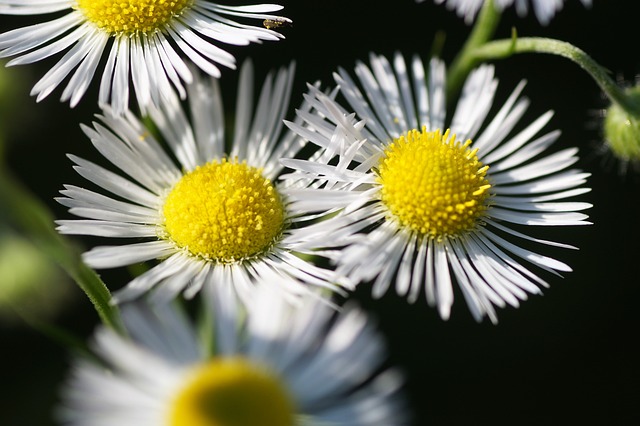Δ-9-tetrahydrocannabinolic acid (THCA) flower extract, a non-psychoactive cannabinoid from the hemp and marijuana plants, is gaining attention for its therapeutic properties. Initial studies suggest THCA may offer anti-inflammatory, analgesic, neuroprotective, anti-nausea, and anxiolytic benefits without inducing a high. Its interaction with the endocannabinoid system is believed to underpin these health advantages, making it a subject of curiosity for researchers and a potential natural remedy for pain management and various conditions, including neurodegenerative diseases. THCA flower extract's anti-inflammatory effects are particularly promising for chronic inflammation, while its analgesic qualities could be beneficial for managing neuropathic pain. The potential of THCA to protect neural cells and inhibit tumor cell growth, along with its influence on neurotransmitter release, highlights its role as a wellness supplement that may aid in maintaining brain function and regulating mood. However, it's crucial to note that more research is needed to fully understand its efficacy and safe application, and individuals should consult healthcare professionals before incorporating THCA flower extract into their health routines.
exploration into the multifaceted potential of THCA flower extract reveals a compound with promising therapeutic properties. This article delves into the various dimensions of THCA flower extract, from its purported health advantages to its intricate mechanisms within the human body. We’ll examine its anti-inflammatory and analgesic effects, neuroprotective benefits, and its potential role in managing mental health conditions such as anxiety and depression. Additionally, we’ll explore its antioxidant capabilities and its relation to gastrointestinal health. As with any substance, understanding the safety profile and possible side effects is crucial. With this comprehensive overview, readers can make informed decisions about incorporating THCA flower extract into their wellness routines, all while navigating its legal status and accessibility. Join us as we unravel the science behind THCA flower extract benefits and consider its future within medical research and applications.
- Unveiling THCA Flower Extract and Its Potential Benefits
- The Science Behind THCA Flower and Its Therapeutic Properties
- THCA Flower Extract's Role in Inflammation and Pain Management
- Neuroprotective Aspects of THCA Flower Extract
- Impact of THCA Flower Extract on Anxiety and Depression
Unveiling THCA Flower Extract and Its Potential Benefits

THCA flower extract, derived from the cannabis plant in its raw, acidic form, has garnered attention for its potential therapeutic properties. Unlike its decarboxylated counterpart, THC, THCA exists naturally in hemp and marijuana varieties and possesses a distinct profile with unique benefits. Preliminary research suggests that THCA flower extract may offer anti-inflammatory, analgesic, and neuroprotective effects without the psychoactive high associated with its heated form, THC. Proponents of THCA flower extract report its use for managing pain, reducing inflammation, and potentially slowing the progression of certain neurological conditions. The extract’s interaction with the endocannabinoid system may contribute to its positive effects on human health, making it a subject of growing interest in both scientific communities and those exploring natural alternatives for wellness and pain management. As research continues, the potential benefits of THCA flower extract are becoming more apparent, hinting at a wide range of applications that could significantly impact the field of holistic health. Users interested in the therapeutic properties of cannabinoids might find THCA flower extract to be a promising addition to their wellness regimen.
The Science Behind THCA Flower and Its Therapeutic Properties

delta-9-tetrahydrocannabinolic acid (THCA) is the non-psychoactive precursor to the well-known cannabinoid delta-9-tetrahydrocannabinol (THC). Found abundantly in raw cannabis plants, THCA flower extracts have garnered attention for their potential health benefits. Scientific research indicates that THCA interacts with the body’s endocannabinoid system, which regulates various physiological processes, including pain, inflammation, and immune responses. This interaction is thought to underpin the therapeutic properties attributed to THCA flower extracts. Studies have shown that THCA may possess anti-inflammatory, neuroprotective, and anti-nausea effects, making it a subject of interest for both scientific inquiry and medical applications. The anti-inflammatory properties are particularly notable, as they suggest a potential role in managing conditions like arthritis and multiple sclerosis. Additionally, THCA’s neuroprotective qualities could be beneficial in treating neurological disorders, although more research is needed to fully understand its mechanisms of action. The therapeutic benefits of THCA flower extracts are a growing area of interest, with ongoing research continuing to unveil the potential of this cannabinoid and how it might complement existing treatment modalities.
THCA Flower Extract's Role in Inflammation and Pain Management

THCA flower extract, derived from the cannabis plant and abundant in its raw form, has garnered attention for its potential therapeutic properties. Among its myriad of benefits, THCA flower extract is recognized for its anti-inflammatory capabilities. Studies indicate that this compound can inhibit key pro-inflammatory molecules without impairing motor functions as some traditional nonsteroidal anti-inflammatory drugs (NSAIDs) might. This selective action on inflammation makes it a promising candidate for managing chronic inflammatory conditions, potentially offering relief to those suffering from arthritis or other inflammation-related ailments.
Furthermore, THCA flower extract has shown promise in the realm of pain management. The presence of the cannabinoid THC acid A (THCA-A), which is formed by the decarboxylation of THCA under heat, contributes to its analgesic effects. This compound may interact with the body’s endocannabinoid system, influencing pain perception and providing a modulating effect on neuropathic pain. Users often report that THCA flower extract helps in alleviating discomfort, whether it be acute or chronic, without the psychoactive effects commonly associated with its decarboxylated form, THC. Its role as an analgesic and anti-inflammatory agent underscores the potential benefits of incorporating THCA flower extract into wellness regimens aimed at managing pain.
Neuroprotective Aspects of THCA Flower Extract

Studies have explored the neuroprotective properties of THCA flower extract, which is the raw form of tetrahydrocannabinolic acid, a compound found in the Cannabis sativa plant. Preliminary research suggests that THCA may offer protective benefits to neural cells by inhibiting the proliferation of certain types of tumor cells and exhibiting anti-inflammatory properties. Its interaction with the endocannabinoid system is believed to modulate neurotransmitter release, which could potentially alleviate symptoms associated with neurodegenerative conditions. Animal models have demonstrated that THCA can promote neural health by stimulating neurogenesis, the creation of new neurons, and may have a role in supporting overall brain function. These findings underscore the potential therapeutic benefits of THCA flower extract in the realm of neuroprotection, though further human-based studies are necessary to fully understand its efficacy and mechanisms of action. Users considering THCA flower extract for its neuroprotective benefits should consult with healthcare professionals to discuss its potential use as part of a comprehensive treatment plan.
Impact of THCA Flower Extract on Anxiety and Depression

THCA flower extract, derived from the cannabis plant, has garnered attention for its potential therapeutic properties. Tetrahydrocannabinolic acid (THCA), the raw form of THC, is believed to interact with the body’s endocannabinoid system and may offer a range of benefits without the psychoactive effects associated with THC. Studies suggest that THCA flower extract might exert anxiolytic (anxiety-reducing) effects due to its interaction with the CB1 receptors in the brain, which are involved in the regulation of mood and stress responses. This could be particularly beneficial for individuals experiencing anxiety, as it may help alleviate symptoms without the risk of intoxication.
Similarly, preliminary research indicates that THCA flower extract might also have antidepressant-like effects. The compound is thought to influence serotonergic activity, a neurotransmitter system closely linked to mood regulation. By potentially modulating these pathways, THCA may offer support to those seeking natural alternatives for managing depressive symptoms. However, it’s important to approach such claims with caution and consider that the body of scientific evidence is still growing. Users are advised to consult healthcare professionals before incorporating THCA flower extract into their wellness routine, especially given individual differences in response to cannabinoids.
THCA flower extract, a natural compound found in hemp, has garnered attention for its promising therapeutic properties. This article has explored the breadth of potential benefits, from its role in managing inflammation and pain to its neuroprotective qualities and its influence on mood disorders like anxiety and depression. The scientific evidence suggests that THCA flower extract could be a valuable addition to holistic health regimens, offering a non-intoxicating alternative with significant therapeutic potential. As research continues to evolve, the benefits of THCA flower extract may become increasingly recognized, contributing to its growing role in wellness practices and possibly informing future medical applications.
